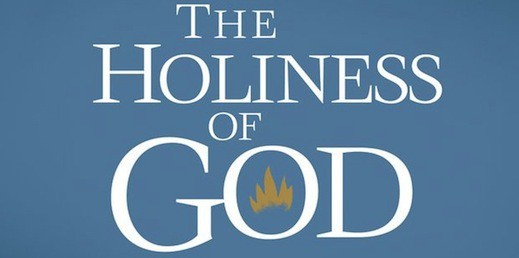So we’ve got just one week left in our reading of R.C. Sproul’s The Holiness of God. Next week we’ll wrap up–rather good timing, I think, since the holidays are just about upon us.
Summary
This week’s chapter was titled “Looking Beyond Shadows.” In the first part of the chapter, Dr. Sproul writes about the ways in which man refuses to acknowledge God as God. God has revealed himself clearly to each and every individual in the world, but left to ourselves we despise that revelation and suppress it.
The real person of God is really known through the real revelation that takes place in the real realm of nature. But the problem is that in the case of God, we distort our knowledge of Him with an image that we create ourselves. This is the essence of idolatry; replacing the reality with a counterfeit. We distort the truth of God and reshape our understanding of Him according to our own preferences, leaving us with a God who is anything but holy.
Paul does not bring a universal indictment against humanity for the failure to know God. That is not our problem. It is not that we fail to know that God is and who God is; it is that we refuse to believe what we know to be true. Here we face a problem that is not an intellectual problem. It is a moral problem. It is the problem of dishonesty. All idolatry is rooted in this fundamental dishonesty.
God’s holiness is not an arcane secret that may be discovered only by some spiritually elite group of people. Rather God’s holiness is on display daily for everyone to see. Again it is not merely that it is available to be seen for those who earnestly search for it. Rather Paul’s point is that God’s holiness is seen, and it is seen clearly.
…The knowledge of God that is given through creation is not a knowledge we warmly receive and embrace. Instead it is our nature to abhor this knowledge of God’s holiness. It is characteristic of the reprobate mind not to want to retain God in our knowledge. We prefer to change the holy into something less than holy. It is this rejection of God’s majesty that leaves us with minds that are darkened. It results in a massive foolishness that has disastrous consequences for our lives. Once we refuse to honor God as God, our whole view of life and the world becomes distorted.
By the end of the chapter Dr. Sproul has transitioned to a discussion of goodness, truth and beauty and how each of those is rooted in the character of God. One thing I find myself praying often is a prayer of gratitude that God is who he is–that he is not the petty deity so many make him out to be, but the powerful, sovereign, good, trustworthy God that he reveals himself to be. These words from the end of the chapter stirred me.
God’s perfection applies to all of His attributes. His power is perfect; it has no weaknesses or any possibility of weakness. His knowledge is not only omniscient but reflects prefect omniscience. There is nothing that God does not know or that He could possibly learn. Some modern theologians have tried to declare that God is omniscient but that His omniscience is a limited omniscience. They assert that God knows everything He can possibly known, but He does not and cannot know certain things, especially the future decisions of free agents. But a limited omniscience is simply not omniscience. And it is not perfect. This view of a limited omniscience robs God of His holy omniscience, which is a perfect omniscience. God’s love, His wrath, His mercy–all that He is–is perfect. Not only is He perfect, but He is eternally and immutably so. There never was a time when God was less than perfect, and there is no possibility that in the future He may slip into any kind of imperfection. What has been with God will be so forever. His perfection is immutable. It cannot change.
Next Week
For next Thursday please read chapter 11, “Holy Space and Holy Time.”
Your Turn
The purpose of this program is to read these classic books together. This means that it’s now your turn to offer your thoughts or your questions on this week’s reading. You can do so by leaving a comment here or by posting a link to your own site if you left a comment there. Of course there is no need to say anything. Just read and enjoy if that’s more your style.











